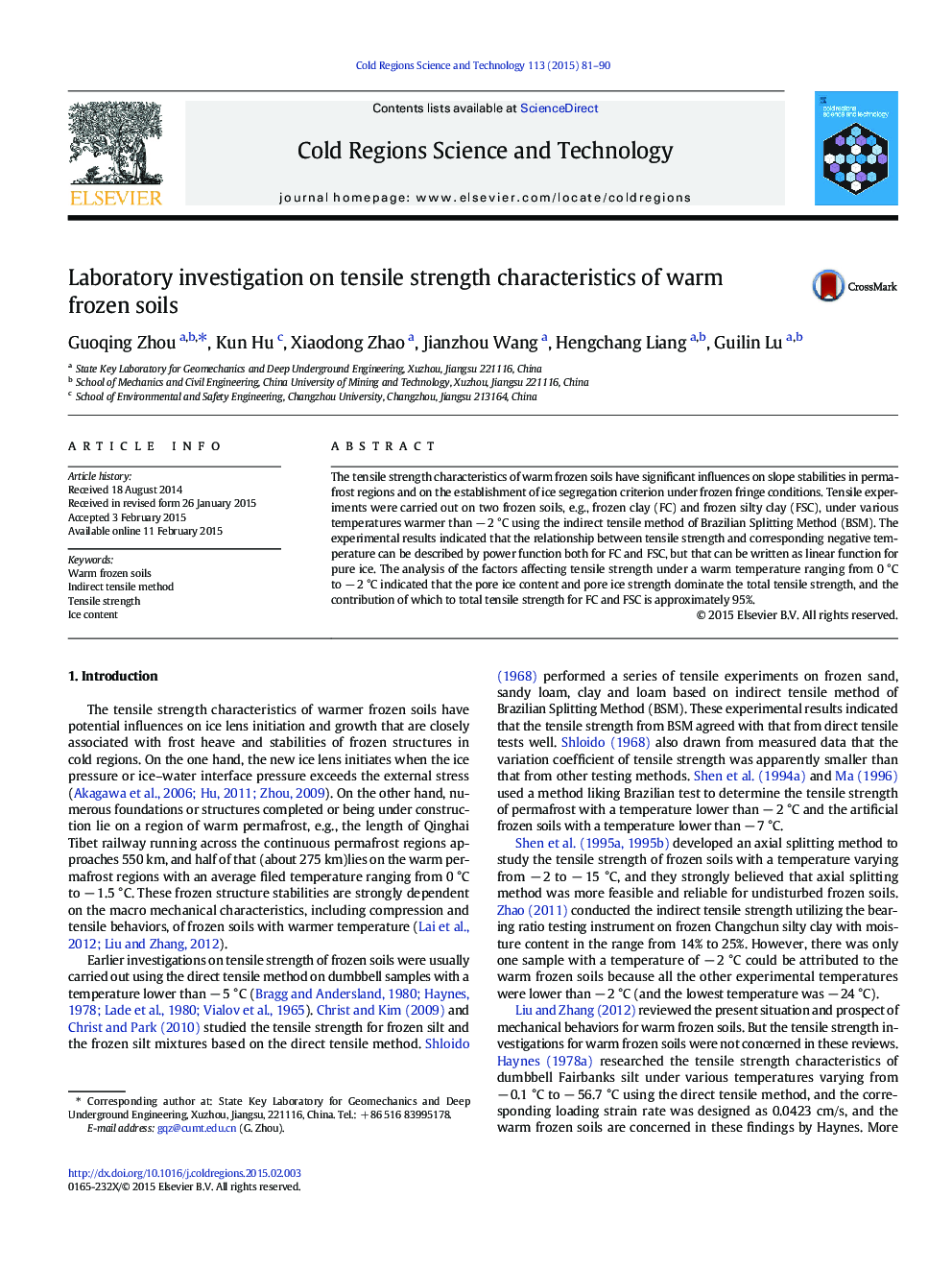| Article ID | Journal | Published Year | Pages | File Type |
|---|---|---|---|---|
| 4675713 | Cold Regions Science and Technology | 2015 | 10 Pages |
•Tensile strength of frozen warm soils was determined.•Tensile strength of warm frozen soils consists of three parts.•Contribution of ice strength and ice content to total strength approaches 95%.
The tensile strength characteristics of warm frozen soils have significant influences on slope stabilities in permafrost regions and on the establishment of ice segregation criterion under frozen fringe conditions. Tensile experiments were carried out on two frozen soils, e.g., frozen clay (FC) and frozen silty clay (FSC), under various temperatures warmer than − 2 °C using the indirect tensile method of Brazilian Splitting Method (BSM). The experimental results indicated that the relationship between tensile strength and corresponding negative temperature can be described by power function both for FC and FSC, but that can be written as linear function for pure ice. The analysis of the factors affecting tensile strength under a warm temperature ranging from 0 °C to − 2 °C indicated that the pore ice content and pore ice strength dominate the total tensile strength, and the contribution of which to total tensile strength for FC and FSC is approximately 95%.
